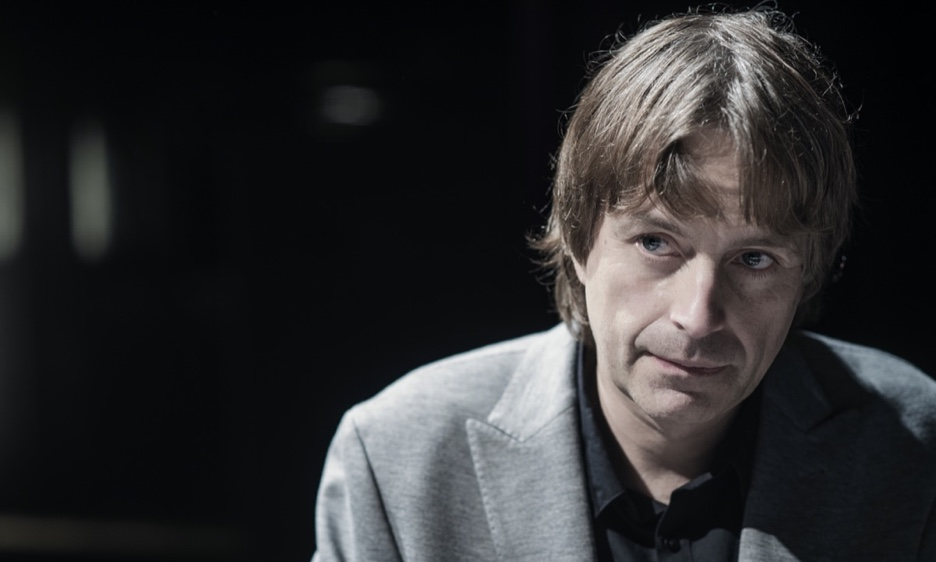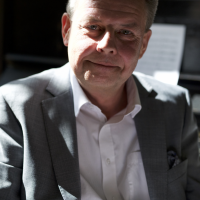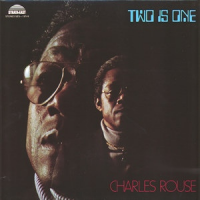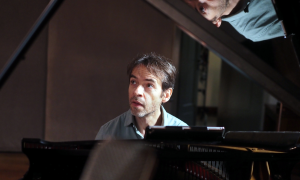Home » Jazz Articles » Interview » Jan Lundgren On Storytelling In Jazz Improvisation
Jan Lundgren On Storytelling In Jazz Improvisation

Courtesy Thomas Schloemann
My practical and theoretical activities in jazz didn't cease, though. When I wrote my dissertation about jazz about ten years ago, my focus of interest was the concept of "storytelling," which I found to permeate so many American reviews and analytical texts about jazz music—and I was interested in investigating how Swedish musicians perceive this concept. At that time, unfortunately, I didn't interview Jan Lundgren, even though he had already then publicly given some highly interesting views on closely related topics. But... Now's the time!
All About Jazz: Jan, you said in a 2013 interview that the musicians in a jazz band agree together on what topic they are going to talk about when they play: for instance, the weather, tennis, chess, or cooking. Now, most of the musicians that I interviewed for my dissertation thought that it is impossible not to tell something when you play. You do it whether you want to or not. But there was probably no one who was so concrete as to say that it is about, say, tennis or cooking.
Jan Lundgren: No, but it isn't that concrete. That's a comparison. It's the most concrete comparison you can make to something else: I think it's like picking out a number of conversation topics to cover during a concert. Eleven conversation topics that correspond to eleven compositions. In order to be able to talk about these topics, we all have to know them. It would be pointless for the audience to pay money to listen to someone who doesn't know everything about tennis, for example. Everyone who is going to discuss a certain topic must be well-versed in it. Tennis, or whatever, is a metaphor for that song, that chord sequence. To master the structure of the composition is the same as mastering the subject you are going to talk about. Then you express yourself freely about this. You present the topic and then you tell your point of view from the heart, and everyone has their say.
The concept of "storytelling" to most people, I think, is about shaping a solo. Needless to say, if you talk about something, it is an advantage if you do it with a certain dramaturgy. Whatever you say, if you give a speech at a birthday party or whatever, you can do it on different levels. Lester Young, for example, is a master at formulating a solo so that people listen—the dramaturgy and everything that it entails. In the long run, you will probably play in the way that you are as a person. It will be inevitable. The better you express yourself musically, the closer you get to your genuine self.
And talking about "storytelling," it's usually not about one person standing up and giving a speech—it's about a conversation with all the other musicians on stage. The main focus is on the person who is leading the conversation, the solo that you have, but what happens there is greatly influenced by what, for instance, the drummer and the bassist do.
AAJ: It's not like you have a ready-made speech in your pocket?
JL: Well, that can also be the case. If Coleman Hawkins plays "Body and Soul" in a way that everyone talks about all over the world, in a legendary way—then the risk is quite high that you will start quoting yourself and connect to it more and more. You know that it went so well, that speech you gave—then you can do the same next time. But that thing can kill improvisation. When you notice that something is working very well, I think it's a kind of human instinct to want to succeed again. Then you repeat yourself, you could say. You try to recreate what you've done before. The audience can also be the ones who choose this for you. Let's say you play a trumpet solo that makes people stand up and scream and applaud—then you must have done something right.
AAJ: Do you think there are any great jazz musicians who have consciously chosen not to "tell" anything in their playing?
JL: If you maintain that "storytelling" is a melodic approach, playing in a linear fashion, playing nice "lines"—then how do you deal with the free form thing? That can also be "storytelling"—although maybe someone speaks Turkish instead.
AAJ: You tell stories using other means.
JL: Or... you don't really know your subject, but you express yourself anyway.
AAJ: And that also tells you something: that you don't know what you're doing.
JL: Let's say you're a great saxophonist, your technical command is great and you have an incredible sound. People love your sound, but when you play "Body and Soul" their reaction is: "He didn't know the subject at all. He knew nothing about tennis!" But everyone loved the way he just shouted out "Björn Borg!"
AAJ: Talking about tennis. You're an accomplished tennis player to boot. This thing about reaction speed...
JL: It's incredibly similar. Jazz is improvisation, you have to constantly react to the music immediately. All the time. And respond to it. Tennis is the same. As soon as you hit the ball, you don't know what's going to happen. Then you have to have a timing in that too.
AAJ: A constant readiness? Impossible to make long-term plans?
JL: Exactly—it's improvisation all the time. You have to make decisions constantly. And the quality of those decisions is absolutely crucial to how well things will go. Music—it's always so fast. That's what you've trained your whole life, the speed of your reaction.
AAJ: When we communicated earlier, I asked a question about what comes first when you improvise, the mind or the hand. Your answer was that the brain comes first, then the fingers—it's not the other way around.
JL: That's how it has to be, I think. Although for someone who's not used to this, the fingers may come first, because the brain isn't quick enough.
AAJ: I guess it's a bit about what you are conscious of. Obviously, all finger movements must have to do with something happening in the brain. But you're not conscious of that.
JL: Exactly. In a good world, the musician's brain should control what the fingers do. The fingers shouldn't just go by themselves, out of routine. But of course, there are many things that are routine. You don't concentrate constantly on having your own way of expressing yourself, but you still have that way of your own.
I can't really remember hearing or reading very much about the word "storytelling." But as long as I can remember, I've heard and read about the importance of building up a solo: how should it be designed? You imagine the climax somewhere, and so on. This has been important in a lot of jazz literature and teaching methodology, this very thing of building up a solo. Theatre offers a good metaphor, I think. On stage, you must create a plan for what you say. That's a comparison you can make. Only there are no words in this case. It's music.
AAJ: I think that as a soloist you are a kind of explorer. You have a point in time when you start improvising, if you have a solo of a certain length, and a point towards which you are going, and you have to go along some path that isn't given beforehand. That's a journey of discovery. The audience, just as they like to follow an actor's path through the drama, they should somehow be made interested in your choice of path. Which path does this explorer choose? You can think of it as something that happens in the moment, continuous path choices.
JL: Sure. And these choices are influenced by the others on stage. They may make you make unexpected choices in how you express yourself.
AAJ: Now, let's say Elon Musk or some other AI billionaire has developed a strong interest in jazz music and one day calls you and says: "Jan, I'm turning to your expertise. I'd like to develop an AI tool that will become the world's best jazz soloist. Is the answer then: It can't be done, right? You'd probably think it's impossible. But where's the catch, would you say? I know this is a rude question, but what would it take for a machine to be able to do what you do at the piano?
JL: It would take a computer that has evolved just like a brain, a computer that can make decisions every microsecond, depending on what the others in the band are playing. A computer that can receive that information and make its own random decisions based on its own experience. To me, it sounds pretty incredible that a computer could ever handle something like that.
AAJ: There are many aspects, I think. You have to be able to react with humour and in a lot of other ways, depending on the feedback from the environment.
JL: Exactly. It feels rather impossible.
AAJ: There's a philosophical question regarding "storytelling" in jazz. If there really is a "story" in the context, where is it located? Is it just in the listener's brain? You and I can sit here and listen to, for example, a ballad solo by Miles Davis, and perhaps experience completely different stories. If there isn't a specific "story" in the mind of the person who plays the music, is it in the music we hear then?
JL: No, there's no concrete answer to that, of course. It's a bit of a fuzzy thing, in a way. You can't play the blues until you've had a bad time, as they say. An older jazz musician told me when I was twenty: You're too young to play the blues. You must have been through a few broken relationships before you can.
AAJ: Things like these make it feel exciting to play all the time. It never becomes routine.
JL: It's always new. That's where jazz has a big advantage over all other genres, where you strive for it to sound the same every time. You have a template for how it should be, you could say. Well, you allow yourself to interpret, but you still play the same notes. And in principle, you might try to play in exactly the same way every time. Jazz isn't at all like other genres. Jazz encourages you to vary yourself as much as possible.
Tags
PREVIOUS / NEXT
Support All About Jazz
 All About Jazz has been a pillar of jazz since 1995, championing it as an art form and, more importantly, supporting the musicians who make it. Our enduring commitment has made "AAJ" one of the most culturally important websites of its kind, read by hundreds of thousands of fans, musicians and industry figures every month.
All About Jazz has been a pillar of jazz since 1995, championing it as an art form and, more importantly, supporting the musicians who make it. Our enduring commitment has made "AAJ" one of the most culturally important websites of its kind, read by hundreds of thousands of fans, musicians and industry figures every month.






















